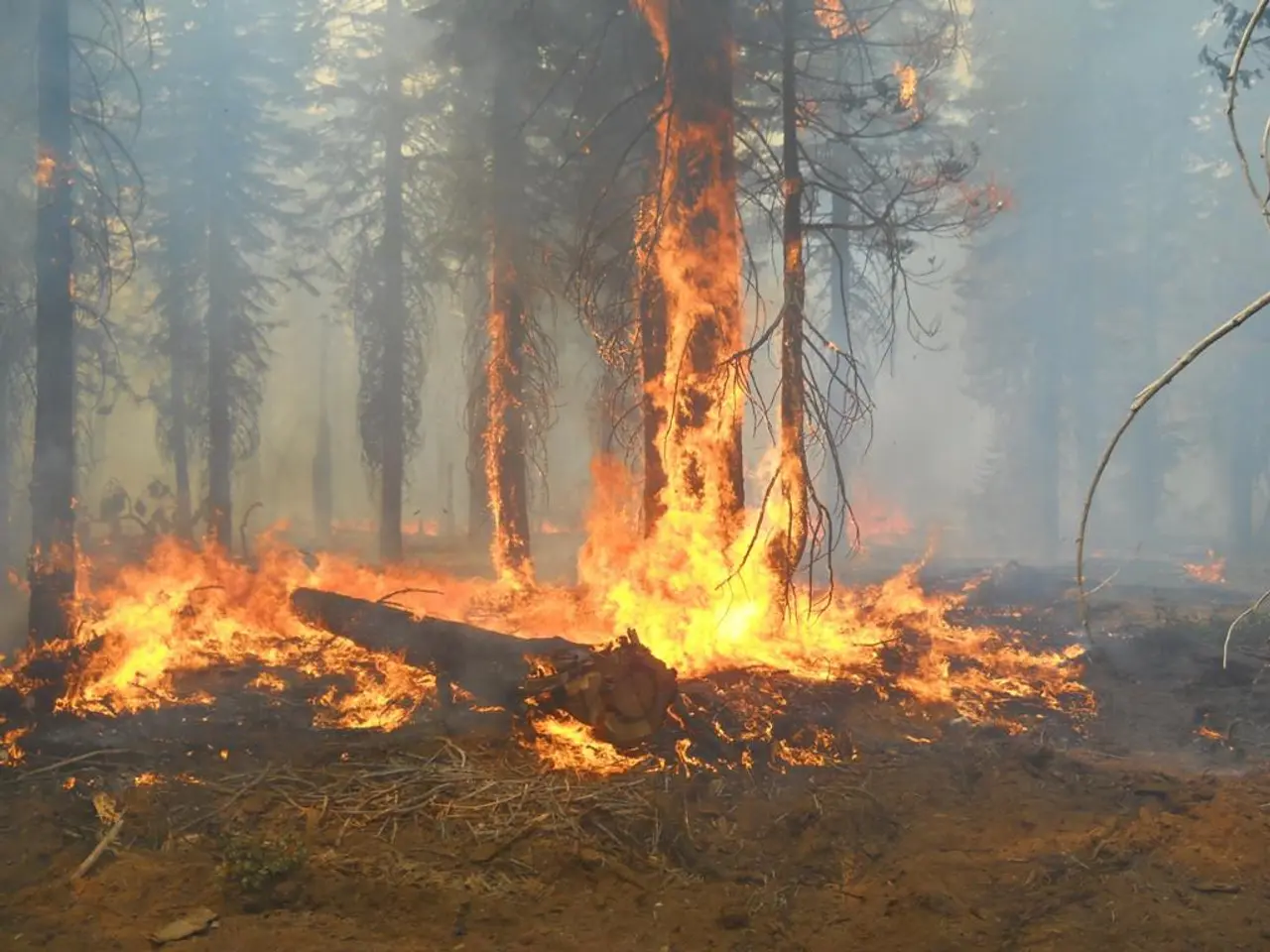Interruption of Vacation by Spanish Prime Minister Triggers "Tsunami" Fire
Severe Wildfires Ravage Spain and Portugal in 2025
The Iberian Peninsula is currently grappling with intense wildfires, with both Spain and Portugal experiencing significant destruction and loss. The fires, fuelled by a combination of climate change-driven heatwaves, drought conditions, and poor land management, have been raging for several days, causing widespread devastation.
Record-breaking Heatwaves and Drought Conditions
The fires have been intensified by a record-breaking heatwave that swept across the region in June and July. Temperatures have soared to extreme levels, drying out vegetation and creating an environment highly susceptible to large, uncontrollable fires. Additionally, drought conditions have worsened the dryness of forests and grasslands, making ignition easier and fires harder to control.
Urban Flight and Neglected Land
The rural exodus and urban flight have led to large areas of vacant land and abandoned farmland, with accumulated ignitable biomass that was not managed or cleared properly by authorities. This has exacerbated the fire risk, as many forests in affected areas are scarcely used, allowing vast amounts of combustible material to accumulate.
Government Failures in Fire Prevention
Government failures to control excess dry vegetation and implement adequate fire prevention measures have been strongly criticized and are under investigation in Spain. Thousands of firefighters, UME members, civil protection, and police have been fighting the flames for days, supported by dozens of helicopters and firefighting aircraft.
Impact and Aftermath
The effects of these wildfires have been severe. Over 894,770 hectares (about 2.2 million acres) have burned in the European Union as of August 2025, with the Iberian Peninsula accounting for nearly half the burnt area. This makes it the worst fire season in over 30 years for Spain. At least 23 people have died due to the fires across Europe, including several firefighters in Spain, with thousands more displaced.
The wildfires have released over 38 million tonnes of CO2 into the atmosphere, an amount exceeding the annual emissions of countries like Sweden. This creates a dangerous feedback loop where fires contribute to climate change, which in turn increases future fire risk. Large tracts of forests and agricultural areas have been destroyed, impacting biodiversity, local economies, and increasing vulnerability to soil erosion and desertification.
International Aid and Response
Spain has requested assistance from EU partners in dealing with the wildfires. An aid convoy of more than 20 firefighting vehicles from Bonn, Germany, is on its way to Spain. Thousands of people have been evacuated from their homes due to the wildfires, and in some villages and smaller towns, a curfew was in effect.
In Portugal, over 3,200 firefighters are battling nine major blazes on Sunday, with a railway connection also interrupted. At least three people have died as a result of the wildfires, and several people were arrested on suspicion of arson. A total of 13 country roads were closed in the Autonomous Communities of Galicia, Castile and León, Extremadura, and Asturias.
Prime Minister's Intervention
Prime Minister Pedro Sánchez has interrupted his summer vacation due to wildfires in northwestern Spain. Two firefighting aircraft from the Netherlands are expected to arrive in Spain. The fires are currently at the highest level of danger in Spain, with Virginia Barcones, the director-general of civil protection, stating that there are 20 fires at this level.
The village of Palacios de Jamuz in León was partially destroyed, adding to the long list of devastated communities. The interplay of climate change, socio-economic changes, and governance failures in wildfire prevention has combined to trigger these disastrous wildfires in Spain and Portugal in 2025. The consequences include substantial human, environmental, and climate impacts, signaling the urgent need for improved forest management and climate mitigation policies.
Read also:
- Amidst India's escalating climate crisis, transgender individuals continue to persevere
- Germany's three-month tenure under Merz's administration feels significantly extended
- Governing body allegedly persists in enjoying vacation time amidst Spain's highest danger level due to fires, claims Feijóo
- United Nations Human Rights Evaluation, Session 45: United Kingdom's Statement Regarding Mauritius' Human Rights Record




